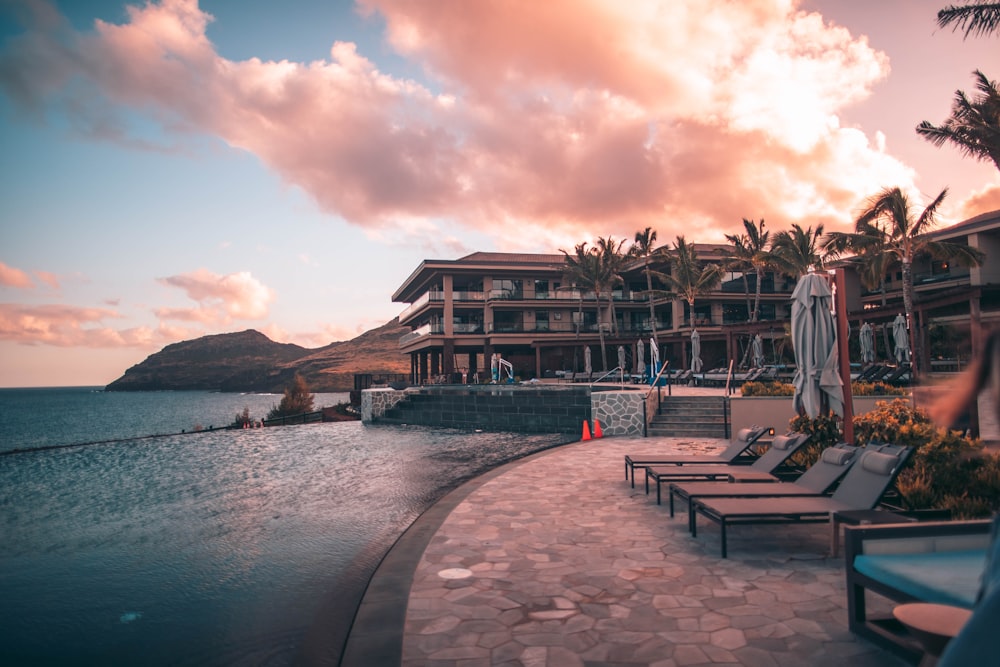What are Cross-discipline Approaches, and Why are They Important?
Cross-discipline approaches refer to research or practices involving two or more academic disciplines. Using a cross-discipline approach when exploring tourism and social justice is important, because cross-discipline research:
- Provides understandings of complex social issues that require various approaches to solve
- Allows researchers to reach a wider audience and communicate diverse viewpoints
- Enables researchers to open up new areas of research and answer questions that traditional disciplines do not ask
By using cross-discipline approaches, we can develop more solutions that address the complex challenges of promoting social justice in tourism development.
The Intersection of Tourism Development and Social Justice
Social justice is the principle that all individuals and communities should have equal access to opportunities, rights, and resources, regardless of their background, identity, or social status. It involves addressing and correcting systemic inequalities and fighting to create a more inclusive society. The five principles of social justice include: human rights, participation, equity, diversity, and access to resources.
In the context of tourism, social justice seeks to address power imbalances, reduce inequalities, and ensure that tourism contributes positively to the social and economic well-being of all active and passive participants.
Tourism’s Impact on Communities
On the positive side, when integrated with social justice principles, tourism can promote cultural preservation, offer training and employment opportunities, and give a voice to communities in the planning and management of tourism initiatives.

However, on the negative side, unchecked tourism development often leads to the displacement of local populations, commodification of culture, and the dispossession of land. Land is appropriated for tourist facilities, and traditional ways of culture are often commercialized and distorted to meet tourist expectations. Additionally, profits from tourism can disproportionately benefit outside investors, exacerbating existing inequalities.
Inclusive Practices in Tourism Development
Therefore, tourism must be developed with a deep commitment to social justice, ensuring that all community members are actively involved in decision-making and share in the benefits. Let’s look at some inclusive practices in tourism development.
1. Community-Based Tourism (CBT)
Projects like community homestays, where tourists stay with local families, allow communities to better control the tourism experience. This ensures that revenue directly benefits the community and promotes cultural exchange and preservation.
2. Fair Wages and Working Conditions
Ensuring that all workers, especially locals, receive fair wages and safe working conditions is vital. Initiatives that provide training and career advancement opportunities for local residents empower them to take on leadership roles within the tourism industry.
3. Participatory Planning
Involving local communities in the planning and decision-making processes of tourism projects ensures their needs and voices are prioritized. Participatory planning might include, at the very least, consulting communities before developing on their land, or ensuring that tourism strategies align with local cultural values.
4. Sustainable Development
Implementing eco-friendly practices that protect local environments and respect cultural heritage is another inclusive practice. This approach benefits both the community and the tourists, ensuring long-term sustainability.
Exploitative Practices in Tourism Development
To better understand the importance of cross-discipline approaches between tourism and social justice efforts, let’s also look at some exploitative practices of tourism development.
1. Land Displacement
In some cases, tourism development leads to the forced displacement of local communities to make way for resorts, hotels, or other tourist facilities. This often happens without fair compensation or consideration of the land’s cultural significance.
2. Cultural Commodification
Commodification is the act of taking something’s original form and commercializing it in order to be consumed. When local traditions, customs, or sacred sites are commercialized for tourism without the consent or involvement of the community, it can lead to the erasure of cultural identity.
3. Unequal Distribution of Benefits
Tourism often leads to economic benefits being concentrated in the hands of large corporations or wealthy individuals, while the local communities, particularly marginalized groups, see little to no benefit. This increases local inequalities and exacerbates poverty.
4. Poor Working Conditions
Exploitative practices include underpaying local workers, subjecting them to unsafe working conditions, or offering no job security. This is particularly harmful to marginalized groups, who may have fewer alternative employment opportunities.
5. Overtourism
A study from the University of Nebraska found that overtourism decreases the quality of life for residents, including housing costs, limited economic opportunities, and the misuse of public spaces.

These examples highlight the need for socially responsible planning in tourism development, which ensures that the benefits are shared equitably and that local communities are protected from exploitation.
Cross-Discipline Approaches to Tourism and Social Justice
Community-Based Tourism (CBT)
Community-based tourism (CBT) is a powerful model for empowering local communities and promoting social justice. CBT emphasizes the involvement of local residents in tourism planning and management, ensuring that they have a voice in the industry. This approach helps preserve cultural heritage by showcasing authentic local traditions and practices, rather than distorting them for tourist consumption. Additionally, CBT often prioritizes fair wages and equitable distribution of economic benefits, which supports local economies and reduces inequalities. By centering the needs and voices of community members, CBT allows a more inclusive form of tourism that aligns with the principles of social justice.
Sustainable Development Goals (SDGs)

Additionally, tourism and development efforts can be effectively aligned with the United Nations Sustainable Development Goals (SDGs) to promote justice and reduce inequality. For example, SDG 10, which focuses on reducing inequality, is directly relevant to tourism development, as it addresses the need for equitable distribution of economic benefits and opportunities. Similarly, SDG 11, which aims to make cities and human settlements sustainable, supports the integration of tourism into urban planning in a way that benefits all residents. By connecting tourism initiatives with these global goals, we ensure that development efforts support economic growth as well as contributing to a fairer and more just world.
A Solimar Case Study: Tourism Development and Social Justice Principles on Atauro Island

In 2019, under the efforts of the USAID Tourism for All Project, Solimar began working with local communities of Atauro Island to help establish a Destination Management Organization (DMO) known as ATKOMA. By leading tourism development initiatives on the island, the Asosiasaun Turizmu Koleku Mahanak Atauro (ATKOMA) helps to ensure that tourism directly supports the community, and that its development includes the voices and vision of local people. This strategic plan for tourism development successfully integrates social justice principles and Community-Based Tourism, with the hopes of creating more economic opportunities for local communities. Read more here.
Challenges and Criticisms of the Intersectionalities of Tourism Development and Social Justice.
Despite proven successes, there are challenges to integrating social justice into tourism and development efforts. Some barriers include:
1. Lack of Resources
Lack of resources hinder local communities ability to engage in and benefit from tourism projects. Financial constraints, limited access to training, and inadequate infrastructure often prevent communities from fully participating in or utilizing tourism opportunities.
2. Resistance from Stakeholders
Resistance from stakeholders, including government bodies, private investors, and even community members, effect efforts to implement equitable practices. These stakeholders often prioritize short-term economic gains over long-term social justice goals.
3. Cultural Misunderstandings
When tourism initiatives are designed without a deep understanding of local cultures and values, they can perpetuate stereotypes and exploit cultural heritage. This lack of cultural sensitivity can minimize the effectiveness of social justice efforts and alienate the communities they aim to support.
4. “Tokenism”
“Tokenism” describes tourism projects that include symbolic gestures of inclusion or community involvement without actually implementing substantive changes. For example, involving local communities in promotional materials or brief consultations without giving them real decision-making power or a fair share of the benefits is a token effort rather than a genuine commitment to social justice. These superficial measures perpetuate existing inequalities and undermine trust between stakeholders and the local communities they seek to serve.
Addressing these challenges requires a genuine effort to ensure that tourism and development projects are well-intentioned and genuinely effective in promoting social justice. This involves transparent practices, meaningful community engagement, and a commitment to addressing systemic inequalities at every stage of the process.
Final Thoughts on Integrating Tourism Development and Social Justice
Additionally, educating tourists about the impact of their travel choices on local communities and environments leads to more responsible behavior and support for ethical tourism practices. Tourism companies and organizations are responsible for providing resources and information that raise awareness about the importance of social justice, cultural sensitivity, and environmental sustainability. Advocacy efforts should focus on amplifying the voices of marginalized communities in tourism planning and policy-making processes.

These examples highlight the possibility of developing tourism projects that advance social justice principles. However, this requires a commitment from all stakeholders: tourism companies, developers, policymakers, and tourists themselves. The commitment to prioritize the well-being of communities over short-term gains is vital. By incorporating community-led initiatives and continuing to push for these best practices, we can ensure that tourism contributes to a more just and equitable world for everyone.
Interested in how we can help you combine social justice principles within your tourism efforts? Contact us to learn more.






















